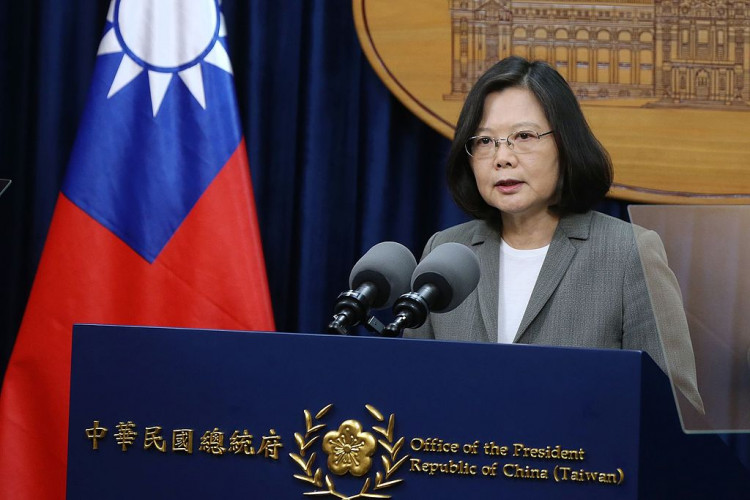The Trump administration Tuesday announced its sixth multimillion dollar arms sales package to Taiwan this year alone in another move furiously denounced by China.
The new $280 million deal involving the sale of a U.S. Army Field Information Communications System (FICS) and related equipment is also the 11th under the Trump Administration.
"This marks President Donald Trump's 11th arms sale to Taiwan since he took office in January 2017 and the sixth in 2020," confirmed Taiwan's Ministry of Foreign Affairs.
It said Taiwan has formally received a notice of the approved sale from the U.S. government. Taiwan and the U.S. will continue to consolidate their security partnership and maintain cross-strait peace and stability, according to the ministry.
The Defense Security Cooperation Agency under the U.S. Department of Defense said it's delivered the required certification notifying Congress of the sale. The proposed sale is consistent with U.S. law and policy as expressed in Public Law 96-8, the agency said.
FICS provides and supports mobile, secure voice and data communications between military command centers and troops in the field. It will enhance the communication and defense capabilities of Taiwan's armed forces.
It will contribute to Taiwan's goal of modernizing its military communications' capability in support of mission and operational needs. The sale of FICS and its associated support won't alter the basic military balance in the region, according to Taiwan's Ministry of Defense.
Also Tuesday, Taiwan president Tsai Ing-wen said her country faced military threats on a daily basis from "authoritarian forces," in an indirect reference to China.
At a security forum in Taipei, Tsai talked about the threats in the region. Her talk included comments about the "increasingly militarized" South China Sea, on which China has illegally built artificial islands with military facilities.
"Authoritarian forces consistently attempt to violate the existing norms-based order," noted Tsai. "Taiwan has been at the receiving end of such military threats on a daily basis."
China's Foreign Ministry denounced the communications package, and again asked the U.S. to stop selling weapons to Taiwan. It again said it will take "necessary countermeasures," but gave no details.
"I hope they can distinguish whether the United States is actually helping them or harming them," spokeswoman Hua Chunying told reporters, referring to Taiwan's grateful response to the sale.
Taiwan's government has moved to reassure its people that the new administration of president-elect Joe Biden, a Democrat, will not lessen U.S. backing for the island.
Speaking at the same forum in Taipei, Kurt Campbell, a former U.S. official who has advised Biden, said there was strong bipartisan support for Taiwan.
"There is a broad group of people across the political aisle that understands the profound strategic significance and our strategic interests in maintaining a strong relationship with Taiwan," said Campbell, the top U.S. diplomat for East Asia under former President Barack Obama.





